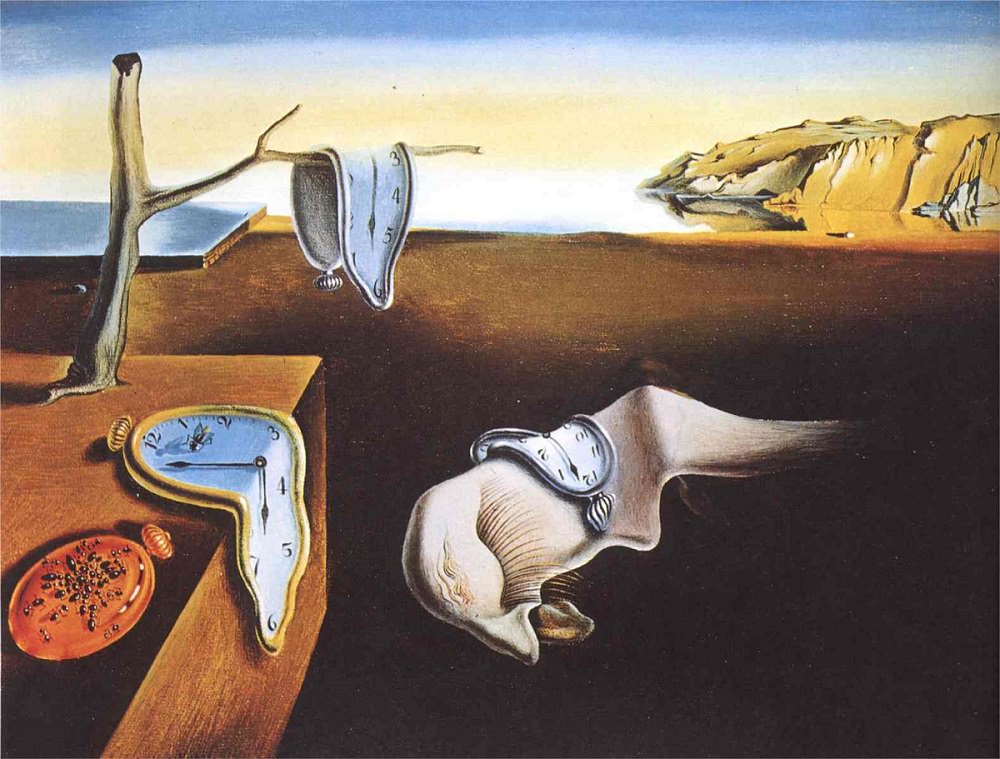
The biggest existential crisis unfolding in my adult life is the perception that time’s rate of passage is progressively accelerating. By now, this is general theme governing everyone’s adulthood and I’m sure most will agree that “time flies” and that time feels like it's “speeding up.” One explanation resides in the logarithmic time perception hypothesis , which states that the subjective perception of time is judged by comparing a long period of time such as a year, to the percentage of one’s current age that it represent. For example, one year extends the life of a ten-year-old by 10% of his or her current life, but adds only 5% to the life of a twenty-year-old. That’s why summers lasted an eternity and school years dragged on forever.
An alternative explanation proposed by James Cook University professor Aoife McLoughlin suggests that the constant use of technology is improving our brains' ability to process information, while simultaneously distorting our perception of time. “I’ve found some indication that interacting with technology and technocentric societies has increased some type of pacemaker within us,” she explains, “While it might help us to work faster, it also makes us feel more pressured by time.”
Although the pervasive nature of technology is a relatively new thing in human history, concern for the passage of time dates back centuries, with records dating back to the French Revolution. McLoughlin's theory is not mutually exclusive from the logarithmic time perception hypothesis, but rather a supplement to it.
After studying groups of people who're always connected to technology versus those who rarely used technology, McLoughlin discovered that the accelerated perception of time is further increased in people reliant on smartphones, tablets, and computers. She observed that they constantly overestimated the amount of time that passed by nearly 10 minutes, and would perceive 50 minutes sitting in a room as an entire hour.
Oddly enough, it’s not just power-users who’re afflicted by this condition; individuals who read an advertisement for the latest iPad also perceived time as passing more quickly than those who read an excerpt from a non-technical novel. “It’s almost as though we’re trying to emulate the technology and be speedier and more efficient,” McLoughlin told ScienceAlert. “It seems like there’s something about technology itself that primes us to increase that pacemaker inside of us that measures the passing of time.”
In essence, the study asserts that there is a genuine quantifiable cognitive basis for the advice “stop and smell the roses,” as McLoughlin puts it; in other words, taking a moment to periodically disconnect from the Internet and social media is actually good for us in the short term.
But as for the long term exposure, we still don’t know whether the impact of this phenomenon is positive or negative. The overall data paints a bit of conflicting picture as some studies show that technology is steadily improving our ability to process information faster and more efficiently.
“On the positive side, a faster processing speed may be an advantage in many circumstances,” said McLouhglin, who’s currently investigating the long-term effects of this temporal speed-up. By contrast, high-time pressure is a leading cause of stress in both men and women. The tragic irony of the matter is that technology is seeming causing our brains to speed up, but we’re too busy being distracted and stressed to take advantage of that.
Source: JCU.Edu.au
Image: The persistence of Memory by Salvador Dali.
Advertisement
Learn more about Electronic Products Magazine





